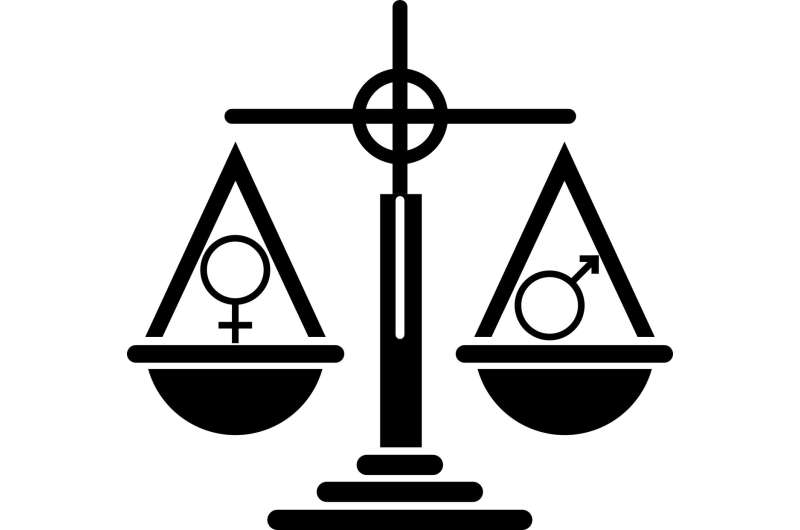New research reveals women outperform men on intelligence, competitiveness and literacy

Lisa Lock
scientific editor

Andrew Zinin
lead editor

For decades, studies and societal narratives have suggested that women score lower on standardized intelligence tests, are less competitive, and are less financially literate than men. But are these presumed traits accurately measured?
New research from Glenn W. Harrison, Don Ross, and J. Todd Swarthout, economists at the Center of Economic Analysis of Risk at Georgia State's Robinson College of Business, that was in the Journal of Political Economy argues that traditional measures of intelligence, competitiveness and literacy are fundamentally flawed and fail to account for a critical cognitive trait: the confidence that the answer is correct.
The researchers designed choice tasks that provided financial incentives to ascertain the most reliable reporting on confidence, and found women emerged not only as equally capable but in many cases more intelligent, and just as competitive and financially literate in their decision-making.
Rethinking the metrics
Most intelligence tests simply ask respondents to choose the "right" answer. But this binary system ignores a key part of real-world decision-making: how confident one is in that answer.
To test their hypothesis, the researchers used Raven's Progressive Matrices, a widely accepted test measuring fluid intelligence. But unlike traditional Raven's versions, their version asked participants to not only choose an answer but to distribute 80 tokens across the possible eight answers to signal how confident they were in each option.
Participants earned more money the more accurately they allocated their tokens, but if they allocated all tokens to just one of the possible answers, they ran the risk of receiving nothing if they were wrong. So if all but five possible answers were thought to be clearly wrong, and the remaining three were thought to be equally likely, some tokens should be allocated to each of those three.
Harrison and colleagues ran five versions of the test with 370 participants, some with traditional right/wrong scoring, others with incentivized reporting of confidence, and versions where the question order was scrambled rather than presented progressively from easy to hard questions.
"We wanted to design our test to ensure we were getting men and women to honestly express their best estimate of all possible answers to the questions and did that by incentivizing them with real money to tell us precisely how confident they are," said Harrison. "It is just like placing bets on horses in a horse race, where different bookies present you with different odds on the horses."
The surprising results
When confidence was explicitly measured and incentivized, women consistently outperformed men. In the task measuring intelligence, they allocated their belief tokens in a way that achieved higher earnings efficiency than men, meaning they earned closer to the maximum possible expected reward, a proxy for smarter ex ante decision-making under uncertainty.
Perhaps most strikingly, the women's advantage was clearest in the most complex, high-risk settings, which are the very kinds of environments where traditional theories have claimed they shy away from competition when choosing occupations.
"The key takeaway we found was that women are better at knowing when to be confident and when to express lack of confidence," said Harrison. "We discovered with the intelligence test that used progressively harder questions, there was always a point where everyone started to make the observation that some questions were harder, and would slow down their thought processes when responding. But women arrived at that switch point quicker than men, who tended to stay overconfident in their answers for longer."
Why this matters
These findings have powerful implications for education, hiring, leadership development, and workplace design.
First, the results reveal the limits of popular cognitive and personality tests used in hiring, which are often criticized for gender bias. If metrics ignore the appropriate confidence in responses to those tests, they may systematically underestimate women's ability to make sound, risk-aware decisions.
Second, the research directly challenges the long-standing narrative that women just need to "lean in" or become more aggressive to succeed in competitive environments. Instead, the findings show that women may already be playing a smarter game, especially in high-stakes contexts like finance, law, or executive leadership where understanding and managing uncertainty is vital.
In one test modeled on tournament-style compensation, where only the top performer wins, prior evidence found that women opted out more often than men. But far from being a sign of low confidence, this choice was more aligned with their actual chances of winning and their individual risk tolerance. Men, on the other hand, were more likely to "compete too much"—a choice that often reflected poor decisions given their aversion to risk.
"When you're willing to express lack of confidence, you recognize you need to do more research or seek outside counsel before making a decision. Ultimately that recognition leads to better decision making," said Harrison. "Women showed that they were often better at their willingness to express lack of confidence than men when it was appropriate to be less than perfectly confident."
Rethinking risk intelligence
The study adds to a growing body of literature that calls for a more nuanced understanding of "intelligence" in education settings and the workplace—one that blends cognitive ability with self-awareness, risk management, and appropriate judgment in the face of risks.
It also offers a lesson for companies: in environments where uncertainty is the norm, the smartest performers may not be the boldest, but the best at "knowing when to hold 'em, knowing when to fold 'em" to reflect their appropriate confidence in the possible outcomes.
And that's not a sign of weakness. It's a sign of strength.
More information: Glenn Harrison et al, Gender, Confidence, and the Mismeasure of Intelligence, Competitiveness and Literacy, Journal of Political Economy (2025).
Journal information: Journal of Political Economy
Provided by Georgia State University
















